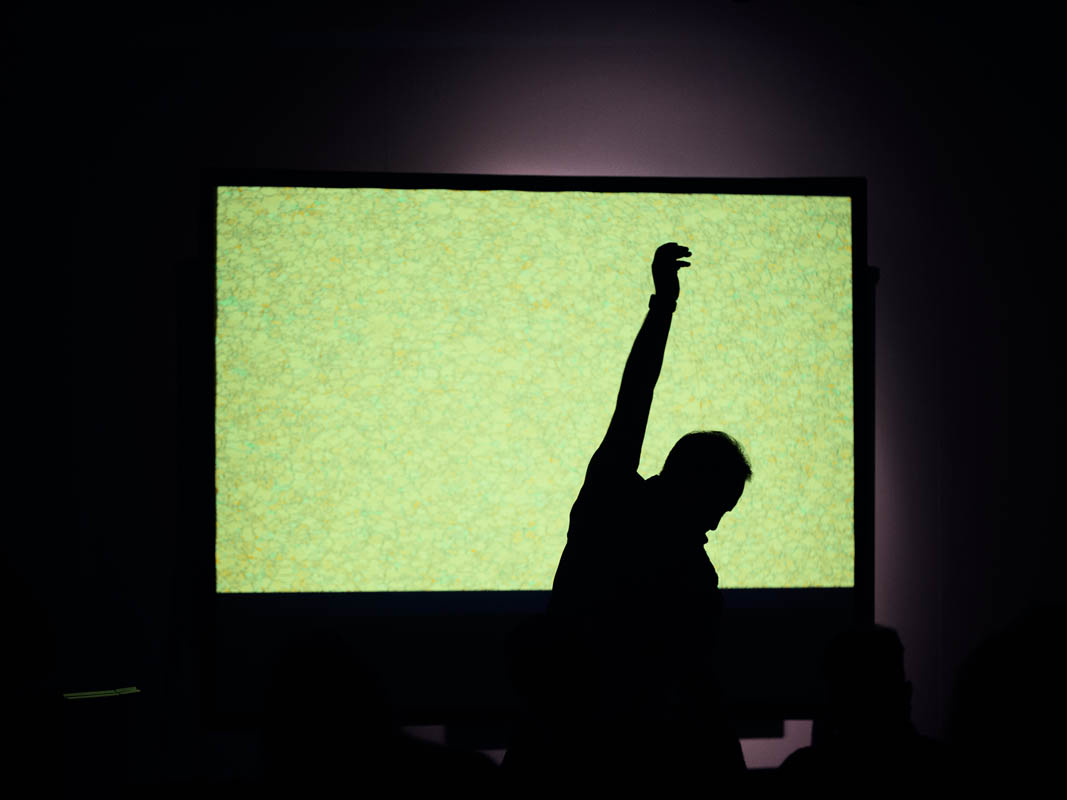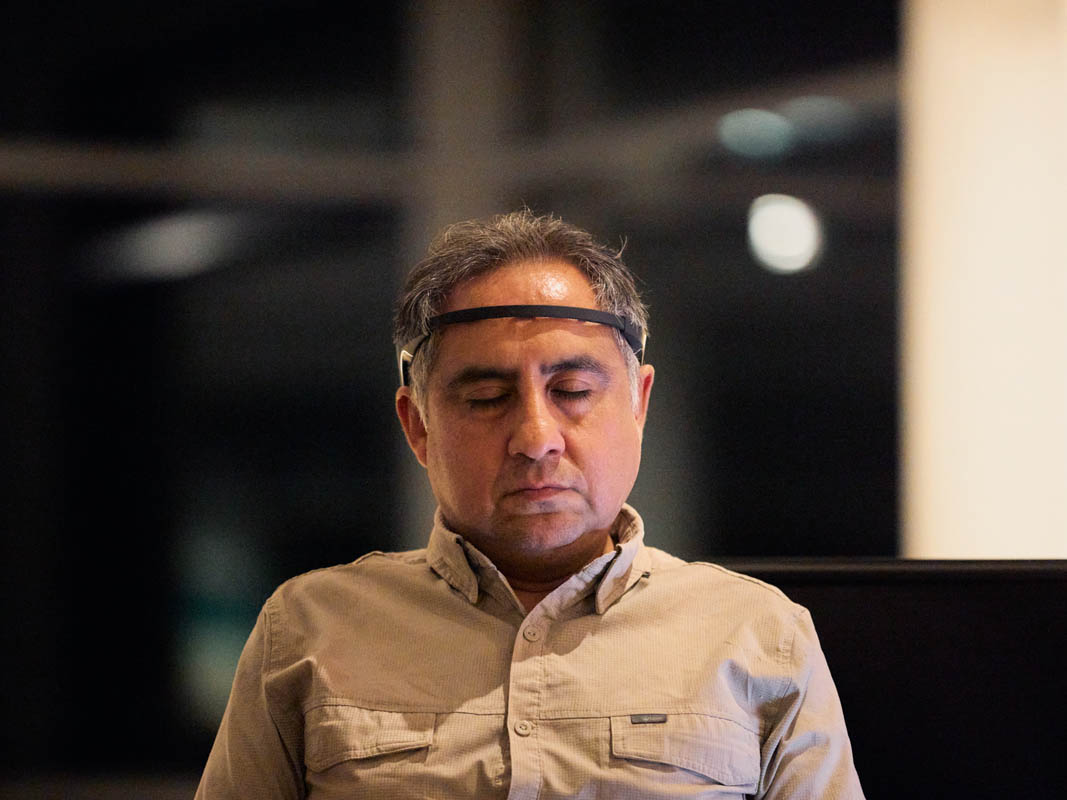Zentrum für interdisziplinäre Forschung
The Sounds of Science
Of all the human senses, sight is often considered to be the most important one. It seems natural to present research results and other data only in texts and images. Coordinate systems, bar charts and curves are understood internationally. But perhaps sounds would be just as suitable, perhaps even more intuitive and easier to understand? A new field of research called "data sonification" is dedicated to the question of how this idea could be realized. In March 2024, musicians and researchers from the fields of mathematics, computer science, biology, aesthetics, data and systems science and complexity research came together at ZiF for the workshop "Complexity, Aesthetics, and Data Sonification". They discussed how an intuitively understandable sonification of (research) data could be achieved.
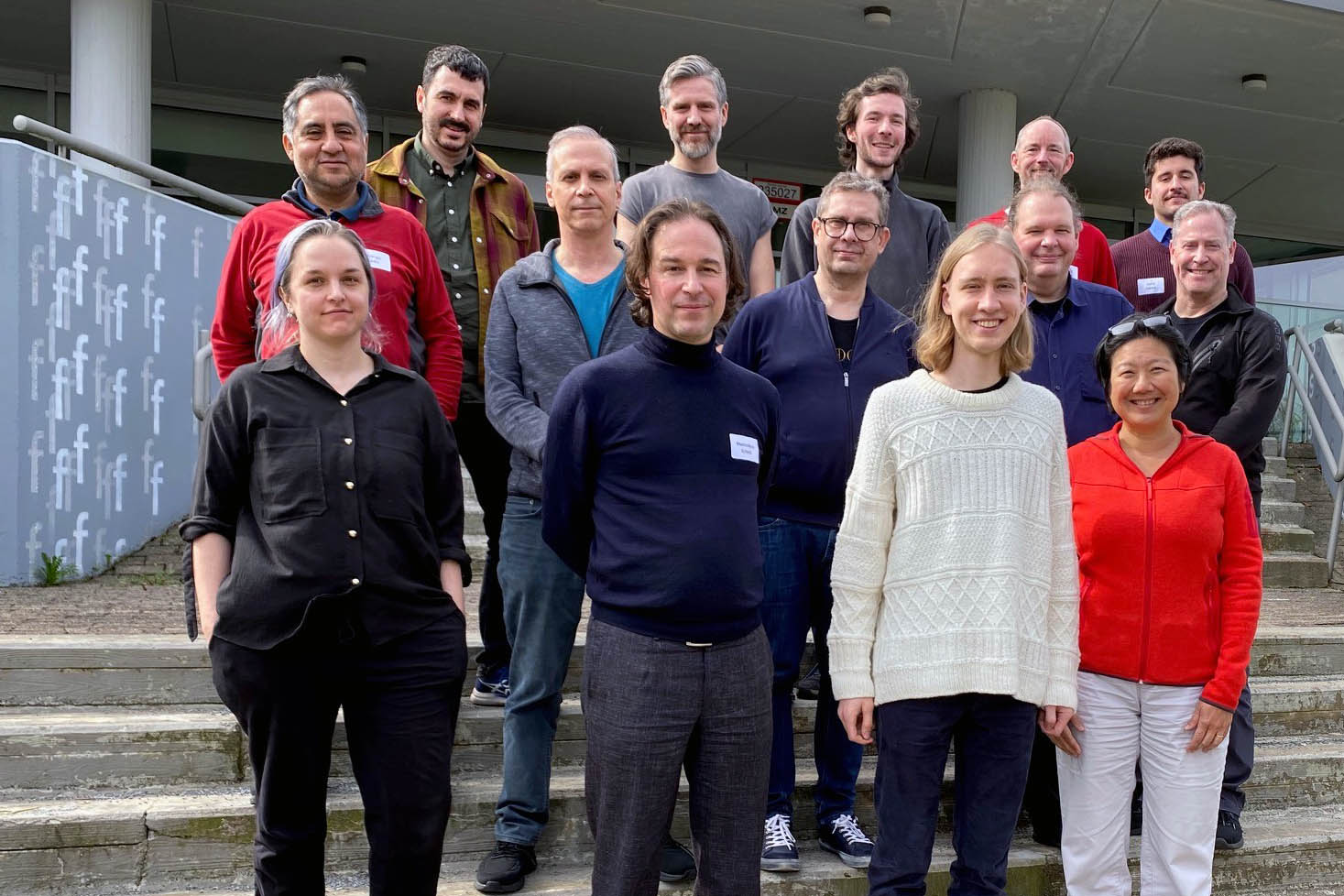 (Group photo: Universität Bielefeld)
(Group photo: Universität Bielefeld)
"The technical problems with data sonification have largely been overcome, but sonification instead of data visualization is still uncommon," reports Dr. Thilo Gross, Professor of Biodiversity Theory at the University of Oldenburg. He convened the workshop together with Dr. Maximilian Schich, Professor of Cultural Data Analytics at the University of Tallinn (Estonia) and Dr. Cristián Huepe, Professor of Complex Systems Research at Northwestern University in Evanston (Illinois, USA). "Sonification promises unheard potential beyond visualization and description, if we can achieve an intuitive and appealing mapping between the two," says Maximilian Schich. Another important aspect: people with visual impairments could benefit from the sonification of data.
A special feature of the workshop was the incorporation of music and sonification performances by participants of the workshop in a public event. ZiF's upper foyer was transformed into a concert and performance hall, convenor Maximilian Schich led through the evening:
(All Photos: Universität Bielefeld/P. Pollmeier)
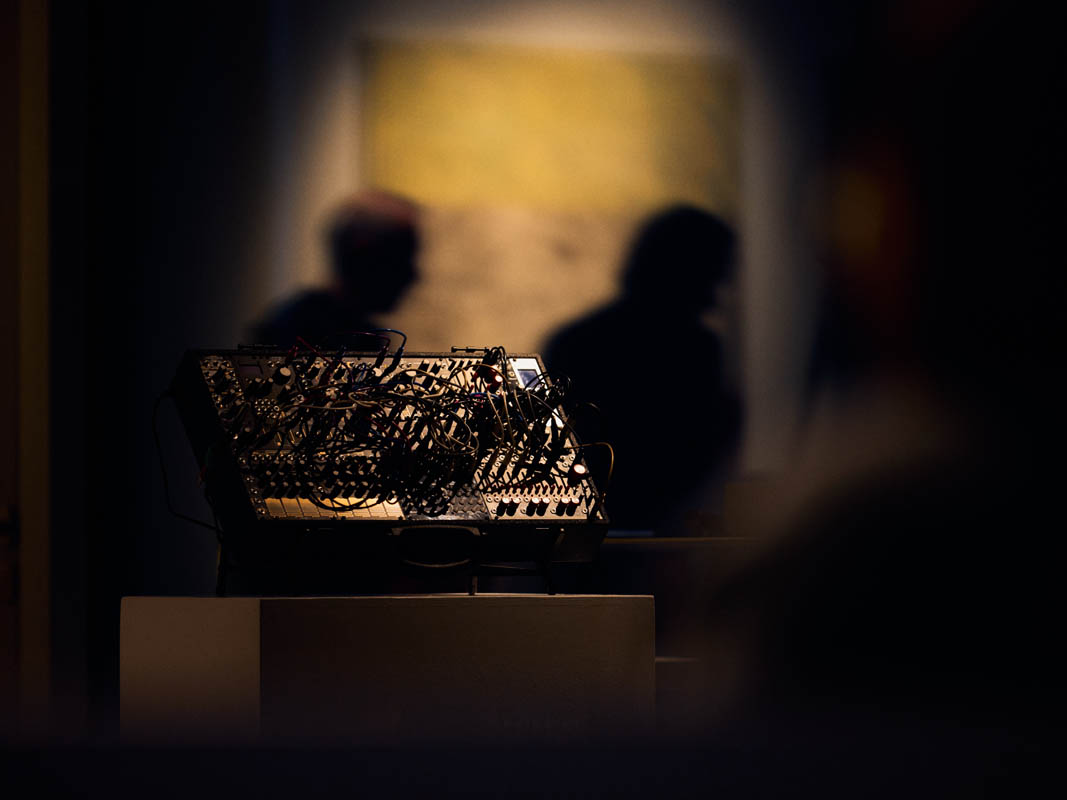
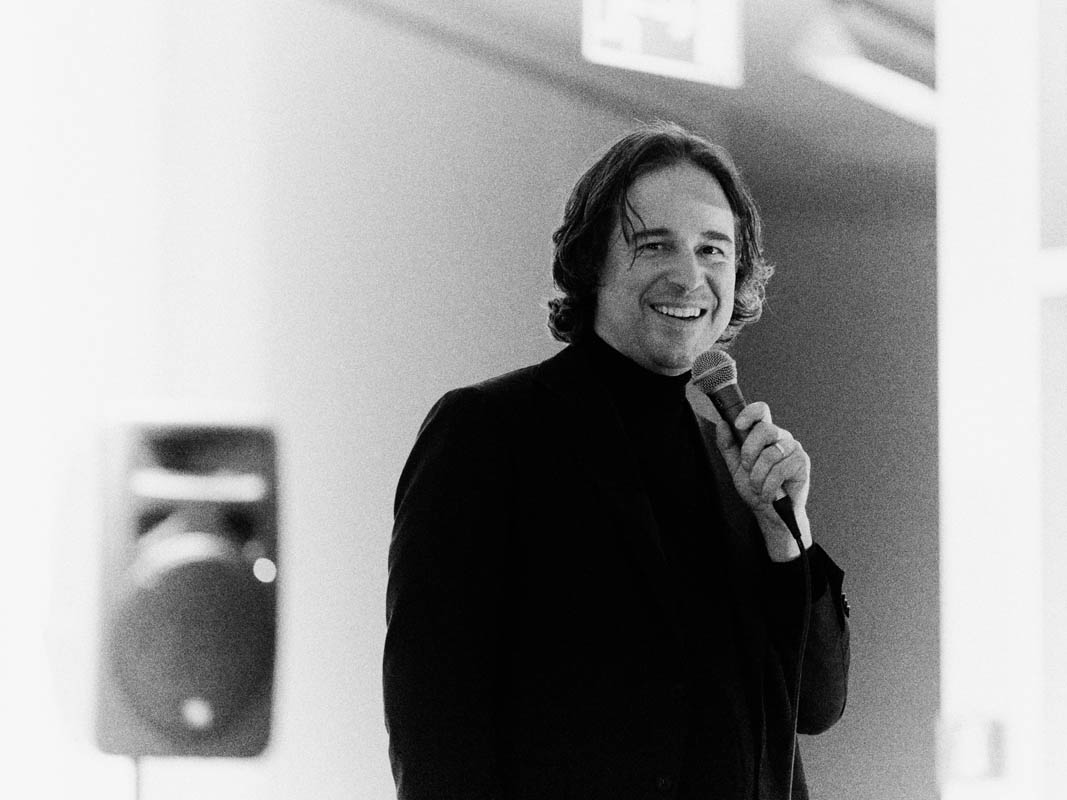
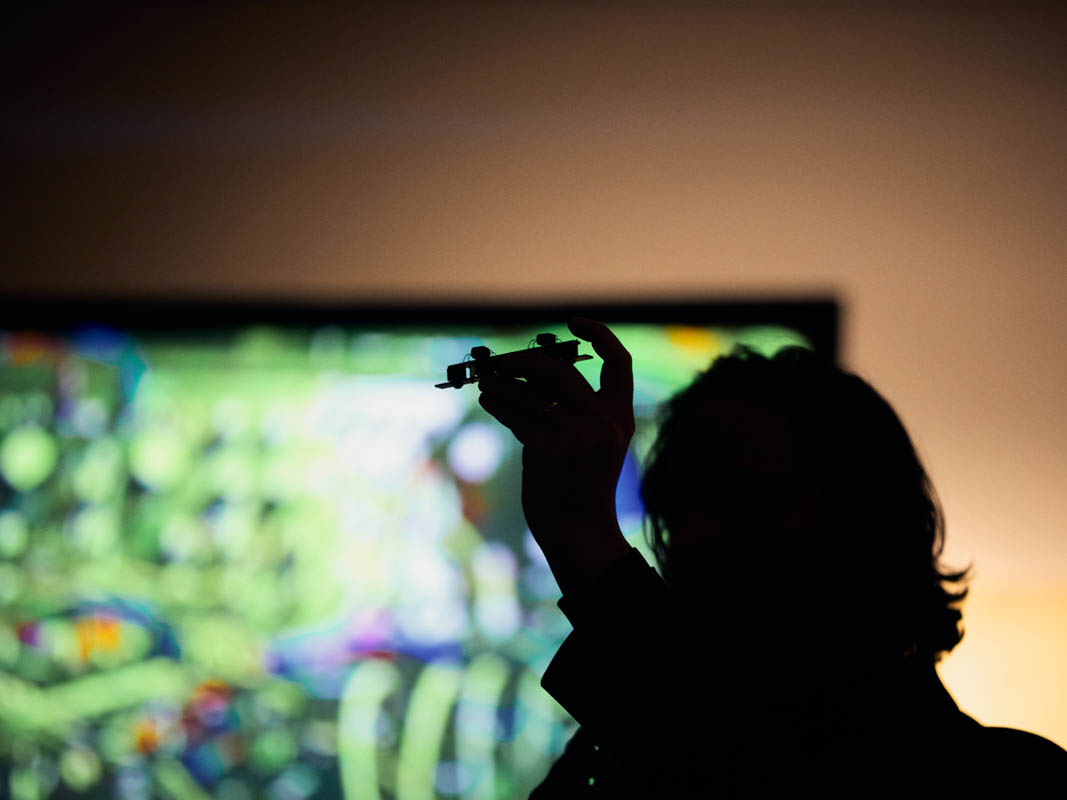
One example of transdisciplinary work was presented by Elaine Chew, concert pianist and professor of engineering and specialist in cardiovascular imaging. She became interested in the heart as a rhythm generator after suffering from cardiac arrhythmia while swimming. She composed pieces of music in which the heart, out of sync, sets the rhythm. She played from and commented on these pieces during the workshop.
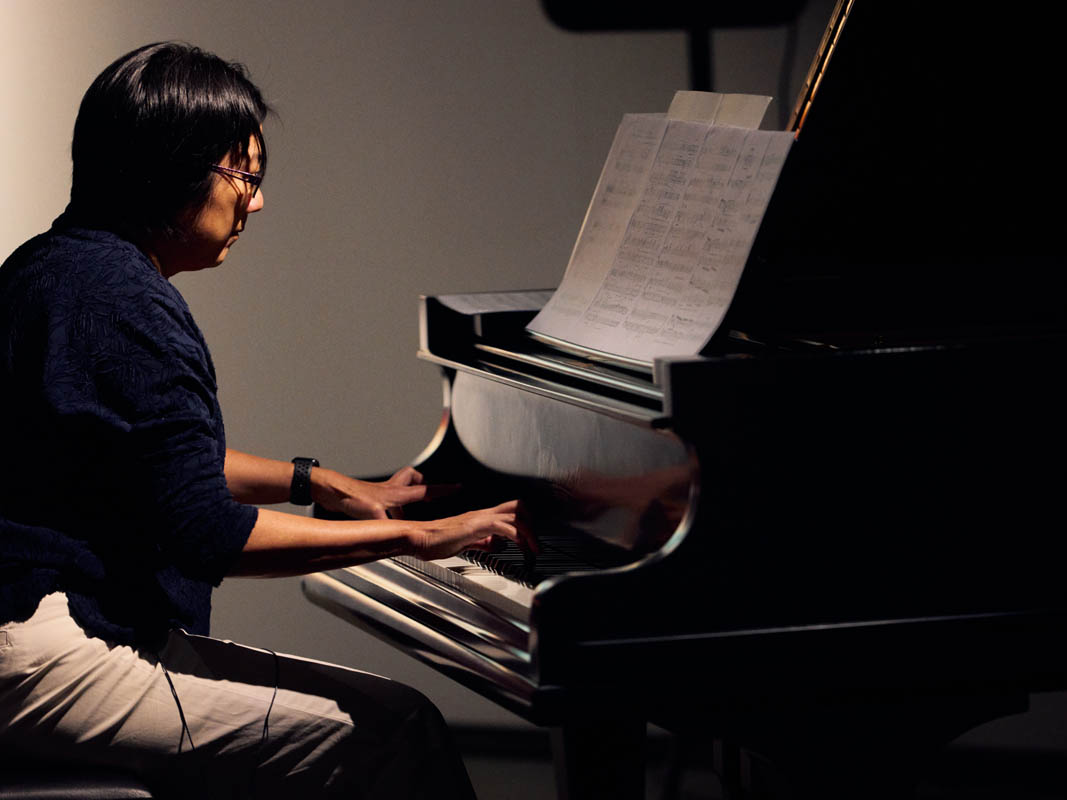
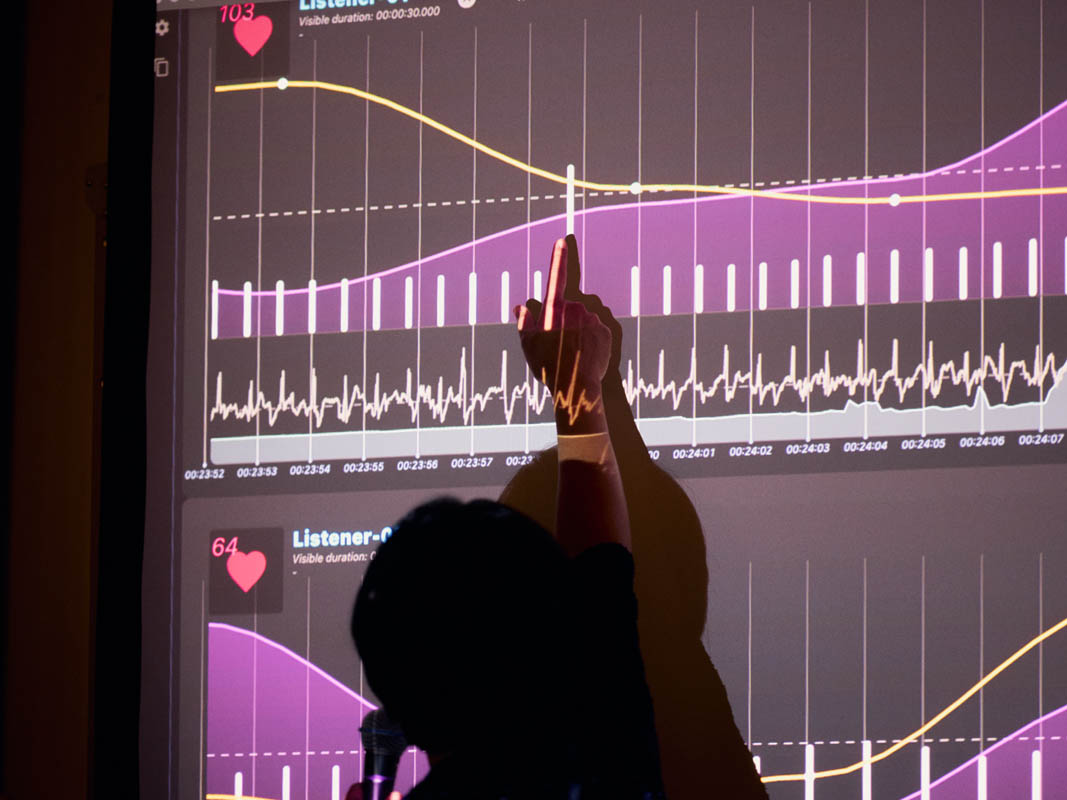
In the overall six performances of the evening, different forms of visuals, sound and processes were shown to the audience and resulted in a very diverse and entertaining evening. Olivia Jack, programmer, artist and founder of the live-coding platform Hydra, did an experimental live-coding music performance:
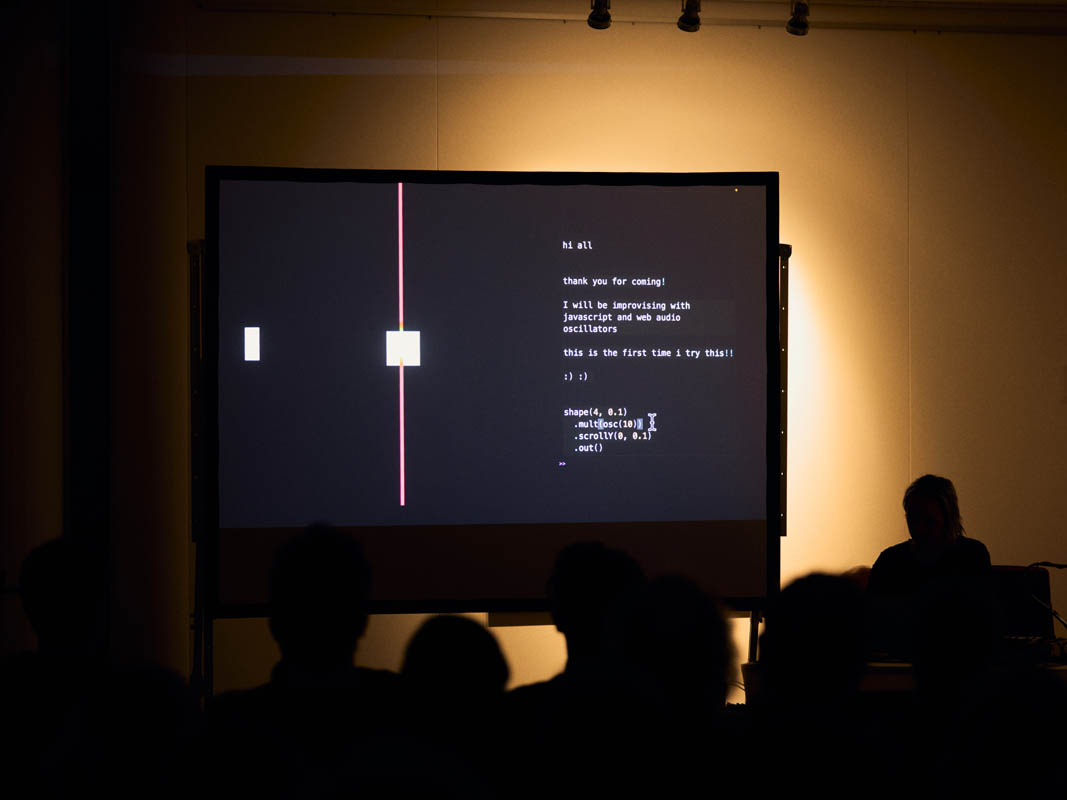
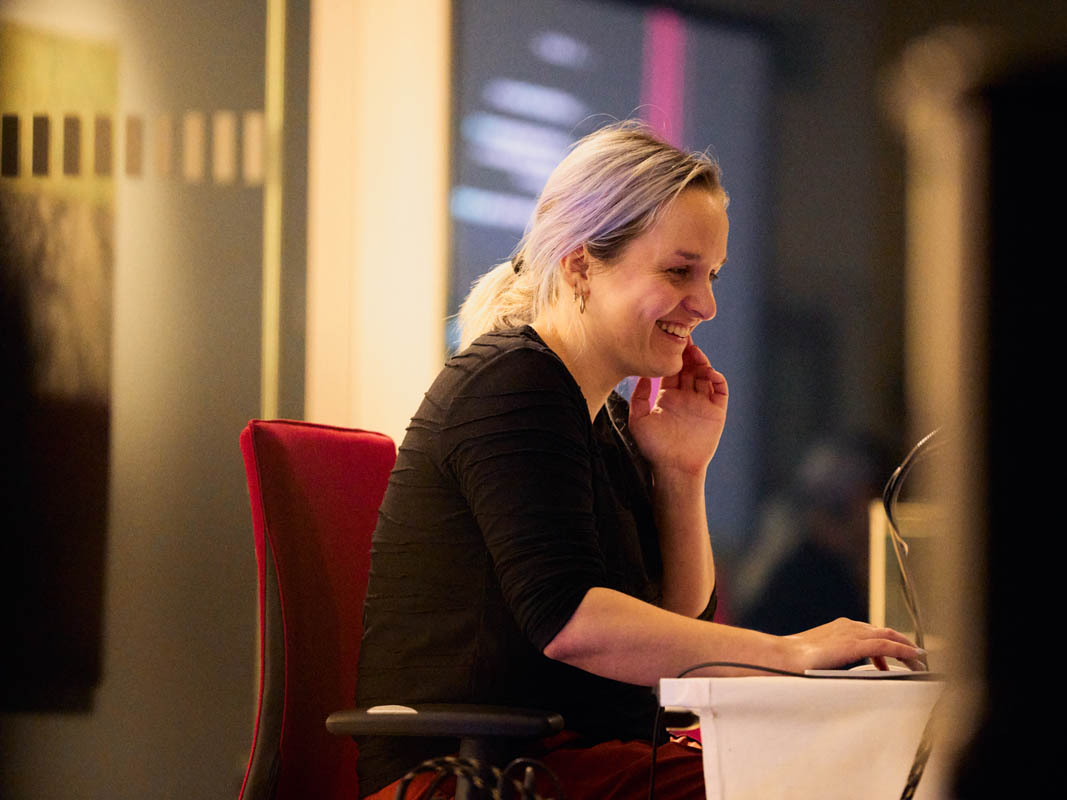
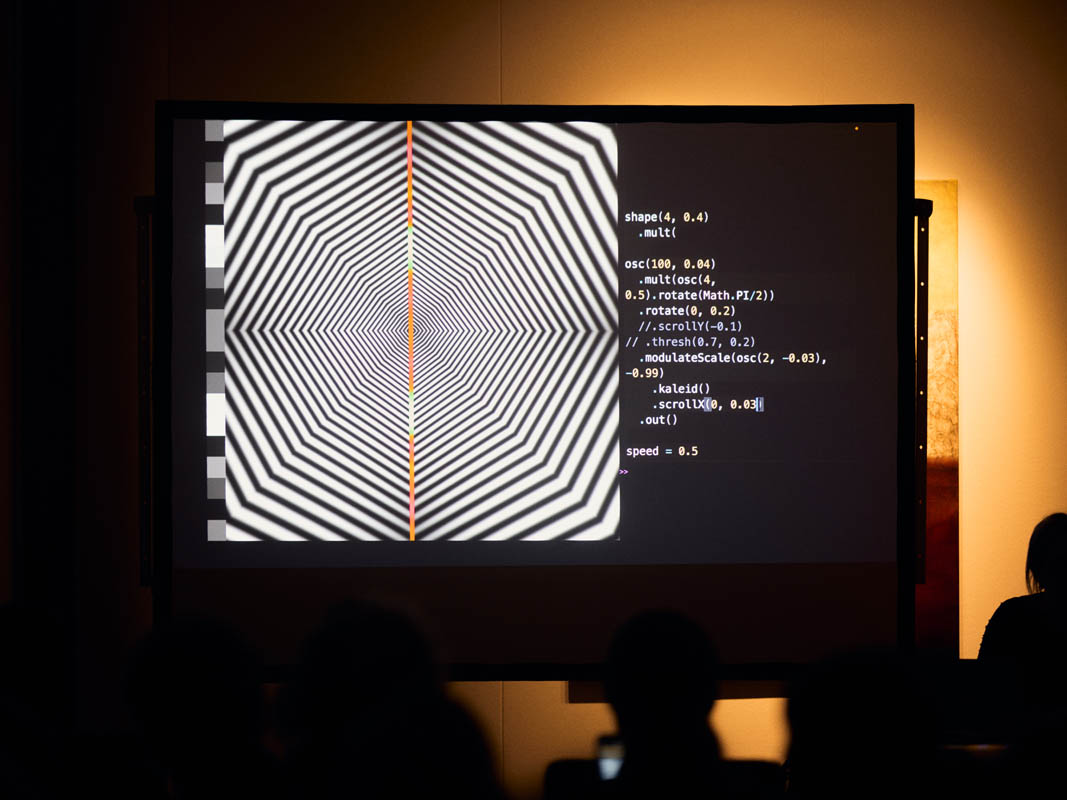
Cristián Huepe, electronic musician, theoretical physicist and convenor of the workshop, performed algorithmic music at the edge of chaos:
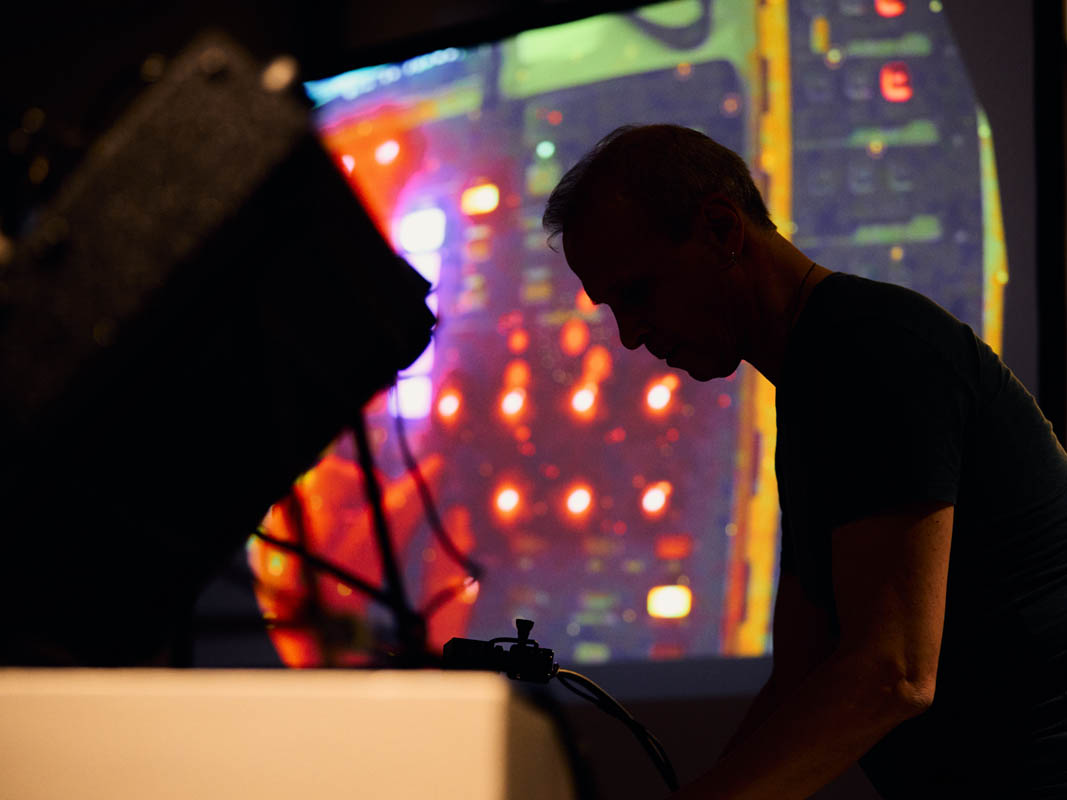
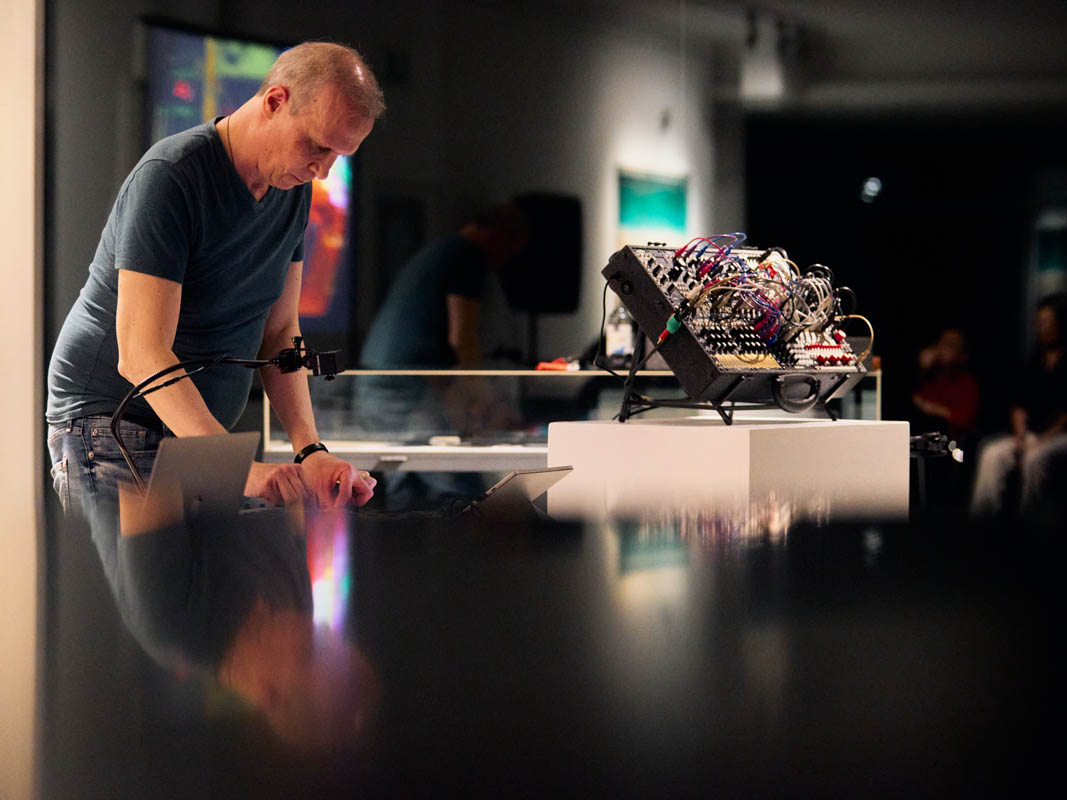
Thomas Hermann, computer scientist and musician, and Christina Möller-Schulze, musician, did a piano and vocal performance:
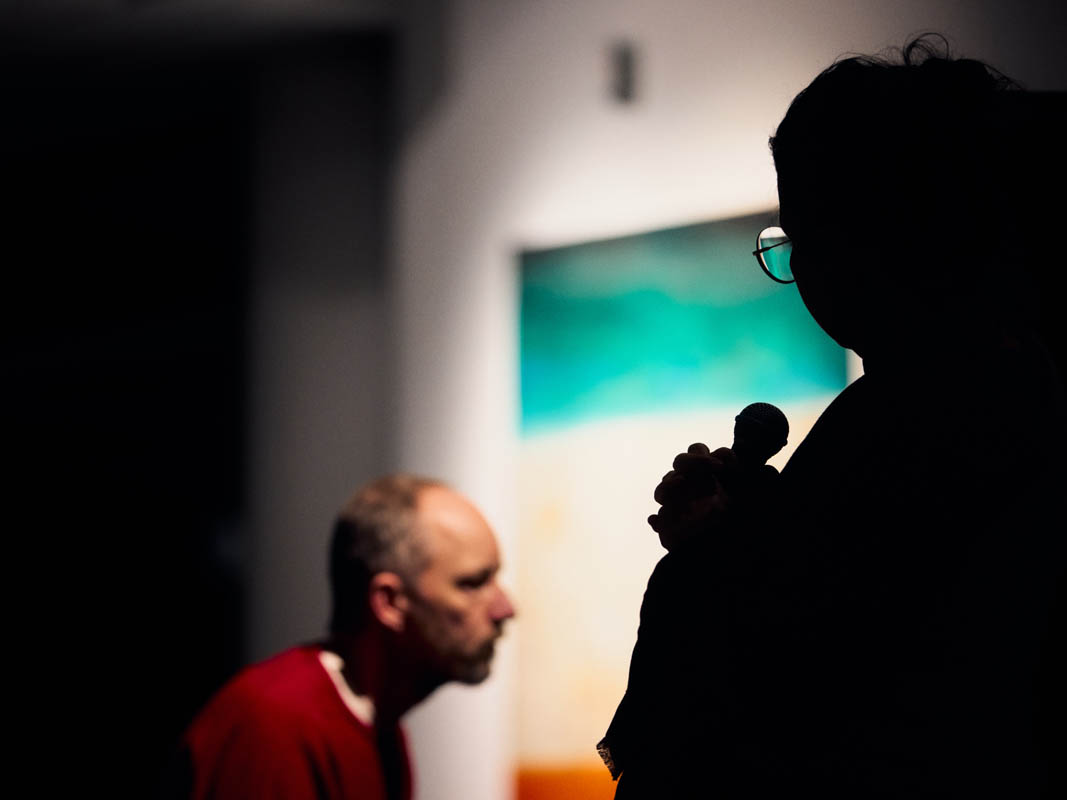
Electronic artist Gareth Williams (Llyr) makes music and sonic ecosystems using field recordings, advanced studio techniques and classic synthesis, and demonstrated examples of that, like audio recordings from the rain forest:
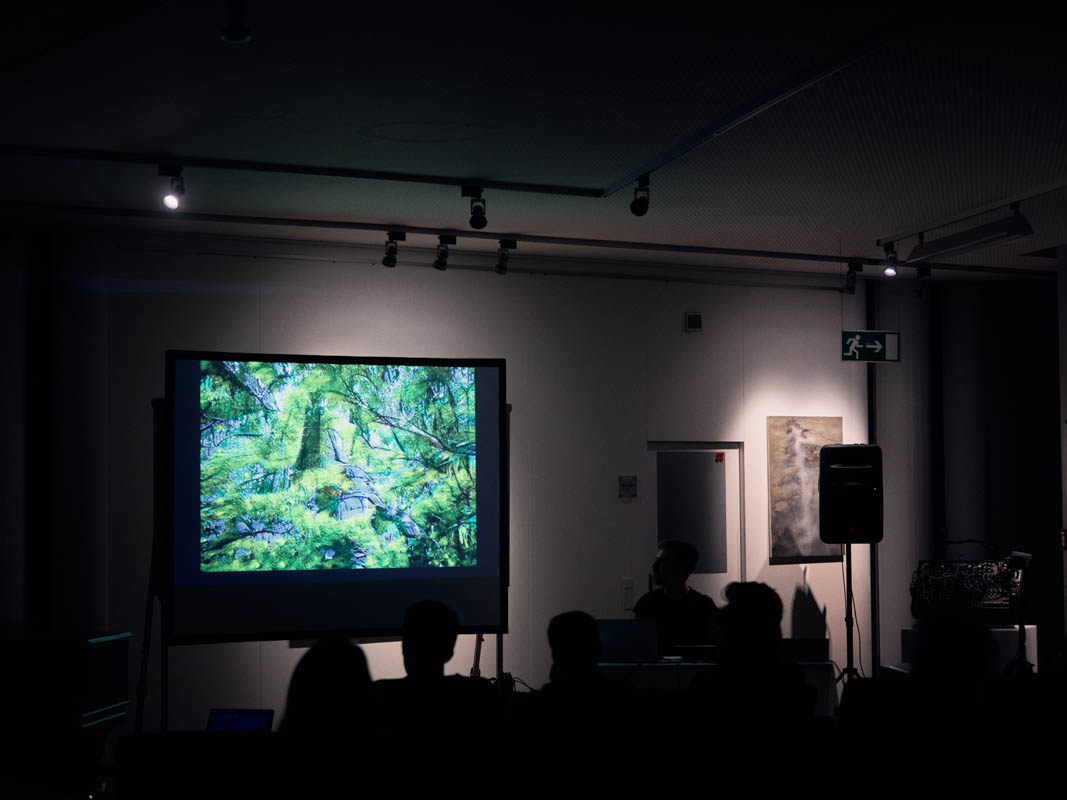
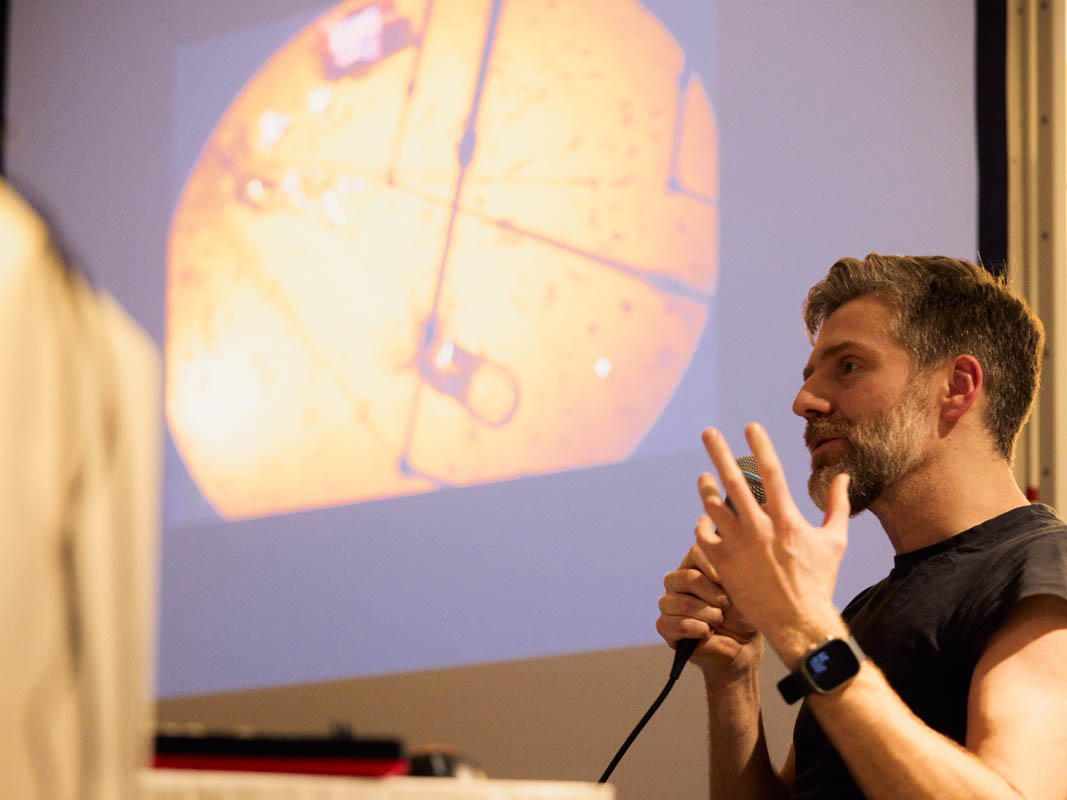
The last performance of the evening by the composer and engineer Rodrigo Cádiz, was a brain-computer interface and physical controller music performance:
